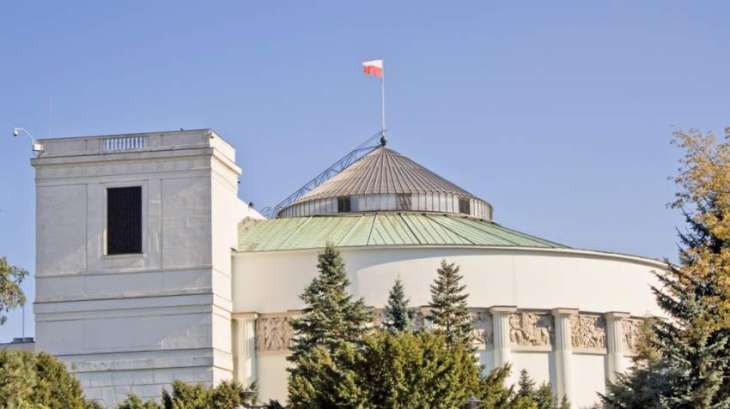The Polish parliamentary elections were administered well, yet the vote was overshadowed by prejudice in media as well as "nationalist" and divisive rhetoric, the OSCE Office for Democratic Institutions and Human Rights (ODIHR) said in a preliminary statement on Monday
MOSCOW/WARSAW (Pakistan Point News / Sputnik - 14th October, 2019) The Polish parliamentary elections were administered well, yet the vote was overshadowed by prejudice in media as well as "nationalist" and divisive rhetoric, the OSCE Office for Democratic Institutions and Human Rights (ODIHR) said in a preliminary statement on Monday.Poland held the general election on Sunday. The ruling conservative Polish party Law and Justice of Jaroslaw Kaczynski is leading the race to the lower house of parliament with 43.76 percent after over 99 percent of votes have been counted. The opposition Civic Platform is coming in second with 27.24 percent.
"These elections were well organized ahead of the vote, but while voters stepping into the polling booth had numerous options available to them, their ability to make an informed choice was undermined by a lack of impartiality in the media, especially the public broadcaster," Jan Petersen, the ODIHR election observation mission head, said.
He also voiced concerns over the "discriminatory rhetoric" used by a number of leading politicians.
"In general, the campaign environment was highly polarized and became increasingly negative, while campaign messages containing nationalist and homophobic rhetoric gave rise to a sense of threat," the mission pointed out.
Among other shortfalls, the mission mentioned that the secrecy of the vote had not always been ensured.
In addition, female candidates "had little visibility and issues of gender equality did not feature highly during the campaign" even though Warsaw fulfilled the requirement that women should make up at least 35 percent of candidates.
Petersen held a press conference in Warsaw to present the mission's initial findings on how the campaign had been organized. He said the ruling party enjoyed more media coverage.
"While all candidates were able to campaign freely, senior state officials used publicly funded events for campaign messaging. The dominance of the ruling party in public media further amplified that advantage," he told reporters.
Although pluralistic, Polish media were sharply divided along political lines, Petersen said. The editorial bias of the media, especially of publicly-funded broadcasters, prevented voters from making an informed choice, while criminal penalties for "defamation" limited access to undermined freedom of the press.




